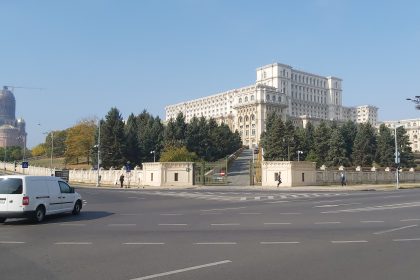
Lobby is a direct or indirect influence on the formulation and implementation of the legislation, regardless of the model used for communication; if there is outsourcing or if there are media sources involved, it’s all about the network of a member, how information is communicated and the promotional materials. In order to promote good practices in lobbying and advocacy activities and to help maintain and increase public confidence, confidence in democratic institutions and the process of public policy implementation, practitioners in lobbying and advocacy have taken important steps in self-regulation.
The self-regulation system initiated consists of:
- Code of Ethics of Lobby and Advocacy Practitioners;
- The Transparency Register of Lobby and Advocacy Activities;
- Commission for the Supervision of the Transparency Register;
The lobbying activity in Romania is difficult to analyze considering the permissive legislation, which allows lobbying companies not to disclose any piece of information about the clients or the money involved in the lobbying campaigns.
Therefore, we can draw some interesting conclusions regarding Romanian lobby:
– the lobbying activity in Romania is still in an early stage
– regarding the situation of the lobbyists in Romania, they will have to find a fair and pragmatic level of transparency in the practices of lobbying, defining the typology of information that is required to be disclosed
– the inclusion of the lobby in a coherent way of recognition in order to gain a well-deserved place in the political system should be one of the priorities of the Romanian government
We have to say it straightforward: public information about lobbying in Romania is inadequate, inaccurate and often unverifiable. The lobbying activities that reached the public agenda in Romania were often linked to the interests of powerful American corporations. It should be noted that the public agenda is usually different from the lobby agenda, as the priorities of the public are not the same as the priorities of the lobbyists.
The lobbying activity in the current Romanian political context
When talking about political context, we are not discussing the political views of a certain party or another, but about the general political context.
Romania, as a semi-parliamentary or a semi-presidential republic, has a relatively constant number of parliamentary parties. The longevity of political structures is usually followed by the development of a lobby industry, which in Romania was not possible until recently.
Under these conditions, the inclusion of the lobby in a coherent way of recognition in order to gain a well-deserved place in the political system should be one of the priorities of the future Romanian governments, following the European tendencies.
Yes, at the moment there is a Romanian lobbying law, but that is only a draft and the politicians offer no signs of a future legiferation.
As we already talked about it, the lobbying activity in Brussels, at the heart of the European Union, is a very dynamic one, recognized by the European Union officials as a necessity for the democratic process.
Conclusion
There is no doubt that the Romanian society needs more transparency from all the actors participating at the process of influencing and decision making that affects the society. The lobbying activity in Romania should be clearly defined, with the difference between the conduct of this professional activity and the activities of the civil society organizations. It clearly distinguishes between a legitimate action and an act of corruption: the lobby is a central and legitimate part of the democratic process within the framework of the liberal democratic systems.




